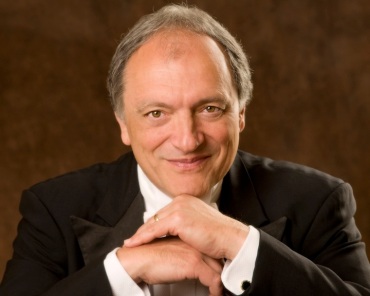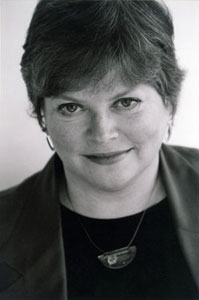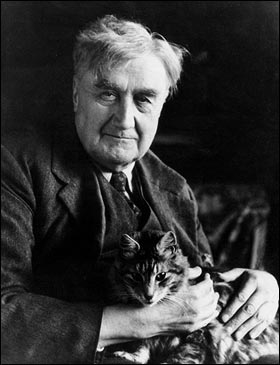The Well-Tempered Ear
Classical music: After Spring Break, the music season’s endgame starts with the season finale of the Madison Symphony Orchestra, which is featuring an unusual but appealing program. Plus, a short concert of student compositions will be featured tonight at the UW-Madison.
2 Comments
ALERT: Tonight, Tuesday night, April 2, at 8:30 p.m. in Morphy Hall (below), a short concert of compositions by students at the University of Wisconsin-Madison School of Music will take place. It is free and open to the public
By Jacob Stockinger
Spring Break is over – it ended Monday – and that means that there are about six more weeks left to the current academic year and the second semester. And thus to the current non-summer concert season.
Perhaps the first group to close out the season is the Madison Symphony Orchestra under its longtime music director and conductor John DeMain (below in a photo by Greg Anderson). The MSO gives three performances of its season finale this weekend.
Now, I have to be honest. The program is one of the more unusual, that The Ear has ever seen. But that is precisely what so intrigues me about it and why the concert is so appealing to me. This is definitely NOT business as usual.
But as usual, performances will be given in Overture Hall on Friday night at 7:3o p.m., Saturday night at 8 p.m. and Sunday afternoon at 2:30 p.m. Tickets are $13.50-$78.50 and can be reserved by calling the Overture Center box office at (608) 258-4141.
So what is it that has struck me as so unusual about this program — which includes works from the 18th, 19th and 20th centuries — ever since I first heard about it a year ago, when the current season was unveiled?
Well, I understand programming Mendelssohn’s Violin Concerto. It is a great spring-like popular work, a lyrical work with soaring upbeat and song-like melodies, even though it was composed in a minor key (E minor). And it is a chance to showcase the formidable talents of concertmaster Naha Greenholtz (below), who is now finishing up her second season with the MSO and who has virtuosic talents of her own to show off in a solo appearance.
And I also understand programming the Madison Symphony Orchestra Chorus, which is directed and prepared by Beverly Taylor (below, in a photo by Katrin Talbot), who is the director of the Choral Department at the UW-Madison as well as the MSO’s assistant conductor.
In fact, the MSO Chorus is often used to end the season with a bang, putting a big group on-stage to make a big sound.
But the pieces it will sing for this concert seem like an unexpected mix.
First there are excerpts from George Frideric Handel’s oratorio “Solomon.” The orchestra will play “The Arrival of the Queen of Sheba,” an effective curtain-raiser that is often played by itself; and then there will be three choruses.
Now, my concerns are definitely NOT those of a purist. In fact I am happy to see the MSO doing Baroque music. I have long wanted the MSO to do more Bach and Handel, as well as Haydn, Mozart and Schubert from the Classical-era.
And I am not along in wishing for Big Bach, given that the New York Philharmonic has just staged a festival of “Bach Variations,” helping to reclaim him from the early music and period instrument ensembles that have – it is absolutely true – changed forever the way that Bach and other early composers are performed and heard.
But except for chronology, the Handel oratorio, great as it is, does seem an odd choice for an opening work.
Then the orchestra and chorus will perform Rachmaninoff’s “The Bells,” which DeMain says he heard recently and was quite taken with. I trust his judgment, though I and many others know Sergei Rachmaninoff (below) much more through his solo piano works, his piano concertos, his symphonies and his chamber and vocal music. I also know the “Isle of the Dead” (which was used in the Frank Langella movie version of “Dracula”).
Rachmaninoff had a thing with bells, including the popular “Bells of Moscow” Prelude in C-sharp minor and several other preludes.
But I have also heard DeMain conduct Rachmaninoff’s “Symphonic Dances” very effectively, and I have heard Beverly Taylor lead the UW Choral Union in Rachmaninoff’s lengthy a cappella work “All-Night Vigil.” So I give the MSO the benefit of the doubt and look forward to the new and the unexpected.
Then the MSO chorus will return to wrap up the concert with a true rarity that I have never heard or heard of: the work by English composer Ralph Vaughan Williams (below) work “Toward the Unknown Region.”
Well, it is aptly named since it is rarely performed or recorded. But again, I defer to the taste of John DeMain, who has time and again shown that he knows how to find and program unusual works that are, in the end, make for a compelling program and total experience.
If you want to know more and hear a preview, here is a link:
http://madisonsymphony.org/feast
Here is a link to program notes by MSO trombone player and music teacher at UW-Whitewater J. Michael Allsen:
http://facstaff.uww.edu/allsenj/MSO/NOTES/1213/8.Apr13.html
What do you think of the program?
Do you have light to shed on the various works?





